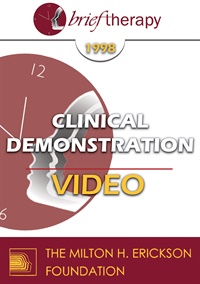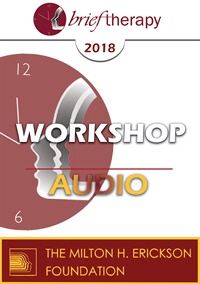
- Average Rating:
- Not yet rated
- Topic Areas:
- Workshops | Couples Therapy | Hypnosis | Trance | Family Therapy | Brief Therapy | Resources | Resistance
- Categories:
- Brief Therapy Conference | Brief Therapy Conference 2018
- Faculty:
- Camillo Loriedo, MD, PhD
- Duration:
- 1:58:55
- Format:
- Audio Only
- Original Program Date:
- Dec 07, 2018
- Short Description:
- Hypnosis will be presented within a system perspective, as a circular and evolving process, while couples and families will be considered as a source of natural healing resources that the therapist should discover and activate. Specific direct and indirect techniques required to induce a deep and meaningful change of the most rigid family patterns will be introduced. The demonstration of a family hypnotic session will give a clear idea of the powerful and subtle resistances families can develop in the course of the hypnotic treatment as well as of how naturalistic systemic hypnosis can transform these resistances in the required solutions.
- Price:
- $15.00 - Base Price
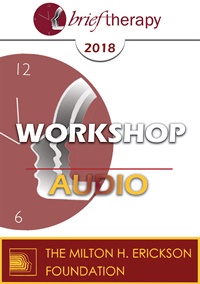
- Average Rating:
- Not yet rated
- Topic Areas:
- Workshops | Anxiety | Brief Therapy | Children and Adolescent Therapy | Depression | Family Therapy
- Categories:
- Brief Therapy Conference | Brief Therapy Conference 2018
- Faculty:
- Lynn Lyons, LICSW
- Duration:
- 2:00:14
- Format:
- Audio Only
- Original Program Date:
- Dec 07, 2018
- Short Description:
- The most frequent complaint I hear from parents about the treatment they receive for their child's anxiety? "No one told us what to DO!" Anxiety is often generational, and by the time a family arrives at your office, they have been in the grips of the cult leader called anxiety for years. Worse yet, many of the things they have been doing, although loving and supportive, are actually making the anxiety stronger. This workshop will describe how to give families immediate and active solutions from the first session, including the use of front loading to provide critical information and understanding, changing the family's relationship with anxiety, and creating active interventions that are often the opposite of what they've typically been doing.
- Price:
- $15.00 - Base Price
- Average Rating:
- Not yet rated
- Topic Areas:
- Clinical Demonstrations | Hypnotic Induction | Family Therapy | Hypnosis
- Categories:
- Brief Therapy Conference | Brief Therapy Conference 1996
- Faculty:
- Camillo Loriedo, MD, PhD
- Course Levels:
- Master Degree or Higher in Health-Related Field
- Duration:
- 59:51
- Format:
- Audio and Video
- Original Program Date:
- Dec 13, 1996
- Short Description:
- BT96 Clinical Demonstration 08 - Family Hypnotic Induction - Camillo Loriedo, MD
- Price:
-
Sale is $29.00
price reduced from Base Price - $59.00
- Average Rating:
- Not yet rated
- Topic Areas:
- Clinical Demonstrations | Brief Therapy | Family Therapy
- Categories:
- Brief Therapy Conference | Brief Therapy Conference 1998
- Faculty:
- Lynn Hoffman, ACSW
- Course Levels:
- Master Degree or Higher in Health-Related Field
- Duration:
- 1:01:38
- Format:
- Audio and Video
- Original Program Date:
- Aug 28, 1998
- Short Description:
- Educational Objectives: To name two differences between the aim of this genogram and that of the traditional genogram. To list two useful effects a reflecting process can have on the conversation about a person's family life story.
- Price:
-
Sale is $29.00
price reduced from Base Price - $59.00
Tags: Brief Therapy Family Therapy
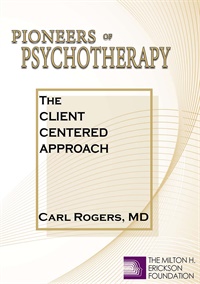
- Average Rating:
- Not yet rated
- Topic Areas:
- Clinical Demonstrations | Psychotherapy | Family Therapy
- Bundle(s):
- Pioneers of Psychotherapy Bundle
- Categories:
- Pioneers of Psychotherapy | Evolution of Psychotherapy | Evolution of Psychotherapy 1985
- Faculty:
- Carl Rogers, PhD
- Course Levels:
- Master Degree or Higher in Health-Related Field
- Duration:
- 00:59:00
- Format:
- Audio and Video
- Original Program Date:
- Dec 10, 1985
- Short Description:
- Carl Rogers (1985) demonstrates with Ann, who describes herself as suffering guilt and sadness after having put off becoming a mother to pursue her career. After deciding to have children, she miscarried twins and has since been unable to become pregnant. Rogers helps her access her own potential to experience herself more positively.
- Price:
- $59.00 - Base Price
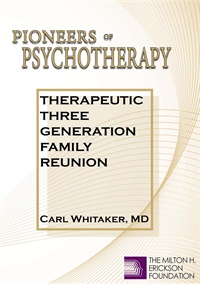
- Average Rating:
- Not yet rated
- Topic Areas:
- Clinical Demonstrations | Family Therapy | Psychotherapy
- Bundle(s):
- Pioneers of Psychotherapy Bundle
- Categories:
- Pioneers of Psychotherapy | Evolution of Psychotherapy | Evolution of Psychotherapy 1990
- Faculty:
- Carl Whitaker, MD
- Course Levels:
- Master Degree or Higher in Health-Related Field
- Duration:
- 00:59:00
- Format:
- Audio and Video
- Original Program Date:
- Dec 14, 1990
- Short Description:
- Carl Whitaker (1990) demonstrates consultation and therapy with a therapist who has brought a bilingual family with a mother who experiences anxiety attacks. The maternal grandmother, mother, father, and two children are engaged by Whitaker as he sits on the floor and experiments with different types of play and fantasy.
- Price:
- $59.00 - Base Price
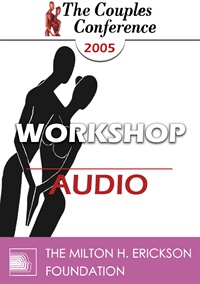
- Average Rating:
- Not yet rated
- Topic Areas:
- Workshops | Cognitive Behavior Therapy (CBT) | Couples Therapy | Family Therapy
- Categories:
- Couples Conference | Couples Conference 2005
- Faculty:
- Frank Dattilio, PhD, ABPP
- Duration:
- 2:39:29
- Format:
- Audio Only
- Original Program Date:
- Mar 06, 2005
- Short Description:
- This workshop focuses on the specific use of cognitive-behavioral strategies as an adjunct to the many treatment modalities of family therapy. It offers a basic overview of the theories of cognitive-behavioral therapy, particularly as it applies to families. Participants will learn first-hand techniques and strategies for working with difficult families and how to integrate these strategies with their respective modes of treatment. Role-playing and case reviews will be used. A question and answer period will follow.
- Price:
- $15.00 - Base Price
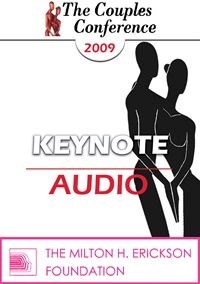
- Average Rating:
- Not yet rated
- Topic Areas:
- Keynotes | Couples Therapy | Family Therapy
- Categories:
- Couples Conference | Couples Conference 2009
- Faculty:
- Cloe Madanes, HDL, LIC
- Duration:
- 54:58
- Format:
- Audio Only
- Original Program Date:
- May 02, 2009
- Short Description:
- Madanes will tell her favorite stories of therapy with difficult couples.
- Price:
- $15.00 - Base Price
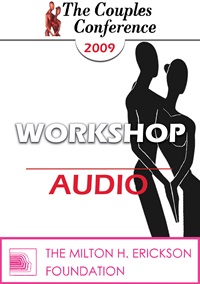
- Average Rating:
- Not yet rated
- Topic Areas:
- Workshops | Cognitive Behavior Therapy (CBT) | Couples Therapy | Family Therapy
- Categories:
- Couples Conference | Couples Conference 2009
- Faculty:
- Frank Dattilio, PhD, ABPP
- Duration:
- 1:15:55
- Format:
- Audio Only
- Original Program Date:
- May 03, 2009
- Short Description:
- This workshop focuses on the specific use of cognitive-behavioral strategies as an adjunct to the many treatment modalities of family therapy. It offers a basic overview of the theories of cognitive-behavioral therapy, particularly as it applies to families. Participants will learn first-hand techniques and strategies for working with difficult families and how to integrate these strategies with their respective modes of treatment. Video clips and case reviews will be used. A question and answer period will follow.
- Price:
- $15.00 - Base Price
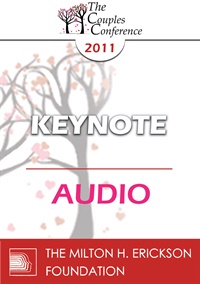
- Average Rating:
- Not yet rated
- Topic Areas:
- Family Therapy | Keynotes | Intimacy | Family Systems | Communication | Couples Therapy
- Categories:
- Couples Conference | Couples Conference 2011
- Faculty:
- Richard Schwartz, PhD
- Duration:
- 56:30
- Format:
- Audio Only
- Original Program Date:
- Apr 03, 2011
- Short Description:
- We have all been taught that our romantic partner should end our misery and make us feel happy and alive. When he or she doesn’t we wonder if they’re the right one. Yet, for most of us, no partner is capable of keeping our heads above the pools of pain and shame we bring to intimate relationships. Only we can drain those pools and become the primary caretakers for the young, needy parts of us that are drowning in those pools. Once this inner trust is achieved, we can love our partners courageously and unconditionally because we don’t need them to always do the heavy lifting of our spirits.
- Price:
- $15.00 - Base Price
Please wait ...



